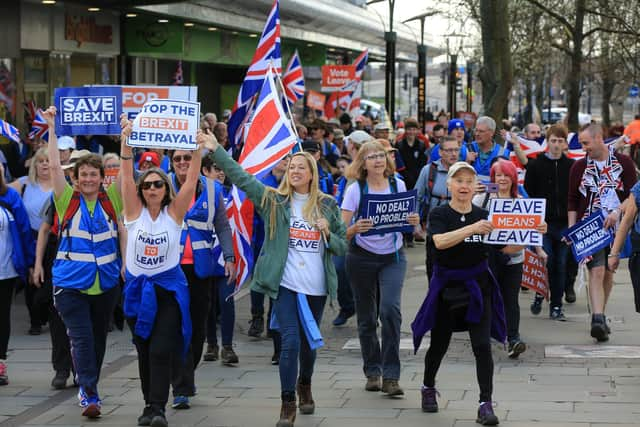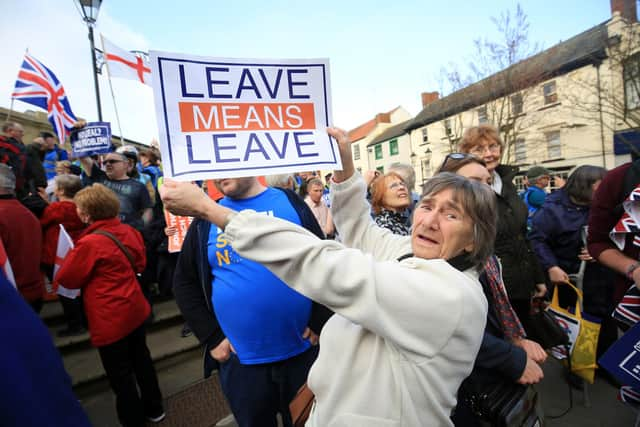This is how council says Brexit is impacting on Doncaster
and live on Freeview channel 276
DMBC bosses have broken down the main areas affected by Brexit in a summary which include business, regulations and borders, health and social care, food supply chains and the EU Settlement Scheme.
On business, bosses said firms had been ‘hit hard’ by the increase in paperwork but added that Doncaster Chamber and Business Doncaster are working with companies that import/export to the EU.
Advertisement
Hide AdAdvertisement
Hide AdThe UK is now free to determine new trading agreements with non-EU countries – including emerging markets in South America which are ‘already on the radar of Doncaster companies’.


On regulations and borders, inspections of import and exports have increased but bosses said opportunities for generating increased trade at ports in Doncaster such as the Doncaster Sheffield Airport and Iport are ‘emerging’.
On food supply, some fresh foods ‘may have intermittent supply’ until new systems are bedded in but ‘opportunities exist’ for local supply chains to grow as a trusted source, bosses added.
Documents seen by councillors also show 78 per cent of eligible Doncaster residents for the EU Settlement Scheme have already been provided with settled or pre-settled status.
Advertisement
Hide AdAdvertisement
Hide AdThe EU Settlement Scheme allows people under certain categories to continue to live in the UK post-Brexit


People who need to apply include those who were born in the UK but are not a British citizen, have a UK ‘permanent residence document’, are a family member of an EU, EEA or Swiss citizen who does not need to apply – including if they’re from Ireland, or are an EU, EEA or Swiss citizen with a British citizen family member.
Sennette Wroot, senior policy and insight manager at DMBC, said: “During 2020, the council chaired a multi-agency forum to ensure a timely review of the risks associated with the end of the Brexit transition period and the start of the UK’s new relationship with the European Union from January 1, 2021.
“Building on experience of similar meetings in 2019 to prepare for the UK Exit from the EU in January 2020, a system of rated risks was considered at each meeting. In addition, central government also provided £220,000 to the council to support the transition process in Doncaster.
Advertisement
Hide AdAdvertisement
Hide Ad“Key to preparation for January 1 has been the resilience of local organisations across the health, local authority, education, social care and business sectors to manage the transition through proactive reviews of business continuity plans and opportunities for mutual aid and collaboration.
“Another focus has been to ensure that information gets to the relevant organisations and locally, there is awareness of where to obtain information, for example business support or access to the EU Settlement Scheme. The council has led on this through social media posts, websites and newsletters.”
Doncaster was the 16th highest Leave voting area in the UK, the biggest Leave voting area in Yorkshire and one of the biggest Leave voting areas in Northern England.
The 2016 vote saw 104,260 people in Doncaster vote to leave the EU with 46,922 voting to Remain – a 69% to 31% split.